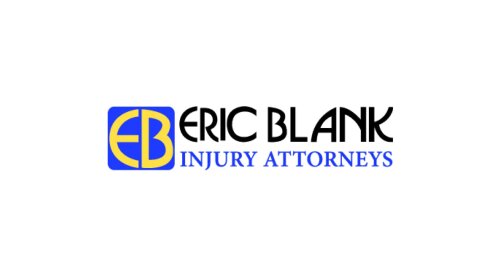Best Reinsurance Lawyers in New Mexico
Share your needs with us, get contacted by law firms.
Free. Takes 2 min.
Or refine your search by selecting a city:
List of the best lawyers in New Mexico, United States
About Reinsurance Law in New Mexico, United States
Reinsurance is a specialized area of insurance law where one insurance company (the ceding company) transfers part of its risk portfolio to another insurance company (the reinsurer). This practice helps insurance companies manage risk, maintain solvency, and offer broader coverage to their policyholders. In New Mexico, United States, reinsurance agreements are regulated under both state and federal laws to protect the interests of insurers, reinsurers, and ultimately, consumers. The New Mexico Office of Superintendent of Insurance oversees the licensing, financial conditions, and legal compliance of entities involved in reinsurance transactions.
Why You May Need a Lawyer
Engaging with reinsurance can be complex due to the contractual nature and regulatory landscape. Common scenarios where legal advice is valuable include:
- Drafting or reviewing reinsurance agreements to ensure clarity and enforceability
- Resolving disputes between ceding insurers and reinsurers regarding coverage, payment, or interpretation of clauses
- Assisting with compliance for foreign or out-of-state reinsurers seeking to operate in New Mexico
- Guiding insurance companies through regulatory exams or investigations related to reinsurance activities
- Providing legal counsel on insolvency proceedings involving insurers or reinsurers
- Advising on tax implications and financial reporting for reinsurance transactions
- Advocating for clients in arbitration or litigation arising from reinsurance disputes
Local Laws Overview
The regulation of reinsurance in New Mexico is grounded in the state's Insurance Code and is administered by the Office of Superintendent of Insurance. Key aspects include:
- Licensing Requirements: Reinsurers must be licensed or accredited in New Mexico to provide services. Exceptions may apply for certain non-admitted reinsurers if specific financial requirements are met.
- Collateral Requirements: Foreign reinsurers may be required to post collateral to secure their obligations to New Mexico ceding insurers.
- Contract Standards: Reinsurance contracts must contain clear terms regarding the transfer and assumption of risks, claims procedures, and dispute resolution.
- Solvency and Reporting: Insurers and reinsurers must meet financial solvency standards and report reinsurance transactions to state regulators.
- Credit for Reinsurance: The law governs how primary insurers can claim financial credit for reinsurance agreements when calculating their own reserves.
- Dispute Resolution: State law may impact where and how disputes between ceding insurers and reinsurers can be litigated or arbitrated.
Frequently Asked Questions
What is reinsurance and why is it important?
Reinsurance is insurance for insurance companies. It allows insurers to share risk with another company, helping to stabilize the insurance market and make more coverage available to consumers.
Who regulates reinsurance in New Mexico?
The New Mexico Office of Superintendent of Insurance licenses and oversees both insurers and reinsurers operating in the state.
Does a reinsurer need to be licensed in New Mexico?
Generally, reinsurers must be licensed or accredited in New Mexico. Certain exceptions may apply for foreign reinsurers that meet financial and collateral requirements.
What are typical provisions in a reinsurance contract?
Reinsurance contracts usually specify premium payments, covered risks, reporting requirements, claims procedures, dispute resolution mechanisms, and termination rights.
Can an insurer take credit for reinsurance with a foreign reinsurer?
Insurers may take credit for reinsurance if the foreign reinsurer is licensed, accredited, or otherwise approved and meets collateral or trust requirements set by state law.
What happens if a reinsurer becomes insolvent?
If a reinsurer becomes insolvent, the ceding insurer may face difficulties collecting payments. In such cases, legal options might involve claims against the estate of the insolvent reinsurer, regulatory proceedings, or recourse through collateral arrangements.
How are disputes between insurers and reinsurers resolved?
Most reinsurance contracts require disputes to be resolved through arbitration. However, the terms of the contract and New Mexico law may determine the venue and applicable law.
Are there specific taxes on reinsurance premiums in New Mexico?
Yes, New Mexico imposes a premium tax on excess lines and may apply taxes to certain reinsurance transactions, particularly for unauthorized reinsurers.
What should be considered before entering a reinsurance agreement?
It is essential to assess the financial strength, regulatory status, and business reputation of the reinsurer, as well as to review the contract terms thoroughly.
Do consumers benefit directly from reinsurance in New Mexico?
While consumers do not purchase reinsurance directly, its availability allows insurers to offer broader coverage and maintain financial stability, which ultimately benefits policyholders.
Additional Resources
For those seeking more information or assistance related to reinsurance in New Mexico, consider contacting:
- New Mexico Office of Superintendent of Insurance - The main regulatory body for insurance and reinsurance matters in the state
- National Association of Insurance Commissioners (NAIC) - Offers model laws, guidance, and registration information for reinsurers
- American Bar Association (ABA) - Insurance Law Section - Provides resources and referrals for legal professionals specializing in insurance and reinsurance law
- Local bar associations - Can help with attorney referrals and basic legal information
Next Steps
If you require legal advice or representation involving reinsurance in New Mexico, consider the following steps:
- Identify the specific reinsurance issue you need help with, such as contract negotiation, compliance, or dispute resolution
- Contact the New Mexico Office of Superintendent of Insurance for regulatory forms, records, or clarification on local requirements
- Seek out a knowledgeable attorney or firm experienced in New Mexico insurance and reinsurance law
- Prepare relevant documents, including contracts, correspondence, and regulatory filings, to present to your lawyer
- Discuss your goals and expectations with your attorney to develop a strategy tailored to your needs
- Monitor all communications and deadlines associated with your reinsurance matters to ensure compliance and safeguard your interests
Navigating reinsurance in New Mexico requires understanding legal, regulatory, and financial factors. Consulting with an experienced legal professional ensures you fully protect your business interests and comply with all applicable state laws.
Lawzana helps you find the best lawyers and law firms in New Mexico through a curated and pre-screened list of qualified legal professionals. Our platform offers rankings and detailed profiles of attorneys and law firms, allowing you to compare based on practice areas, including Reinsurance, experience, and client feedback.
Each profile includes a description of the firm's areas of practice, client reviews, team members and partners, year of establishment, spoken languages, office locations, contact information, social media presence, and any published articles or resources. Most firms on our platform speak English and are experienced in both local and international legal matters.
Get a quote from top-rated law firms in New Mexico, United States — quickly, securely, and without unnecessary hassle.
Disclaimer:
The information provided on this page is for general informational purposes only and does not constitute legal advice. While we strive to ensure the accuracy and relevance of the content, legal information may change over time, and interpretations of the law can vary. You should always consult with a qualified legal professional for advice specific to your situation.
We disclaim all liability for actions taken or not taken based on the content of this page. If you believe any information is incorrect or outdated, please contact us, and we will review and update it where appropriate.
Browse reinsurance law firms by city in New Mexico
Refine your search by selecting a city.















